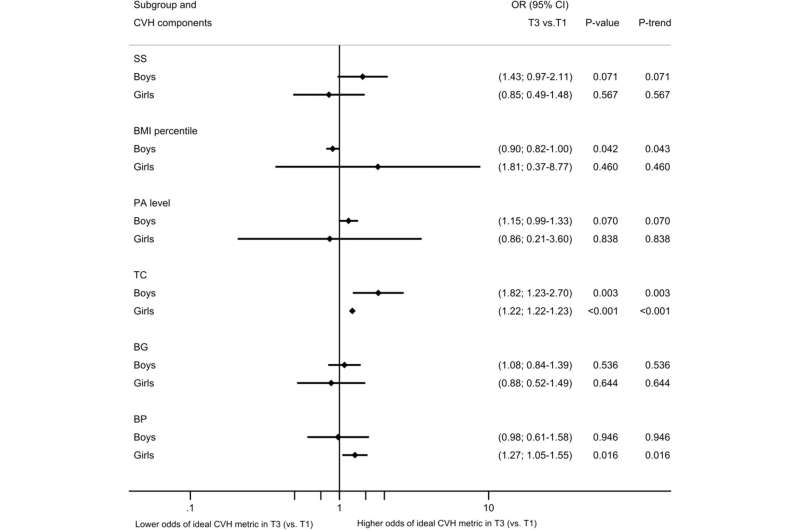Polyphenol consumption in adolescents is associated with better cardiovascular health

The consumption of polyphenols in adolescents is associated with a better cardiovascular health, according to a collaborative research study which includes the participation of the University of Barcelona, the Hospital Clínic-IDIBAPS, the Physiopathology of Obesity and Nutrition Networking Biomedical Research Center (CIBEROBN), the Spanish Cardiovascular Research Network (CIBERCV) and the SHE Foundation.
The study has been published in Scientific Reports. As part of the study, the researchers analyzed the amount of polyphenols in the urine of 1,326 adolescents that took part in the SI! Program (Integral Health) of 24 secondary education schools in Madrid and Barcelona.
The protective effect of polyphenols in a young population
Polyphenols are bioactive compounds with antioxidant and anti-inflammatory properties found in several plant-based foods, mainly in fruit, vegetables, nuts and olive oil. To date, there were few studies on the intake of polyphenols in children and adolescents.
Since this life stage is critical and developments during this stage can compromise cardiovascular health in adulthood, the findings shown in the study are important to encourage similar studies in other European countries and worldwide, as well as to conduct clinical trials to confirm the effect and the dose-response relationship of polyphenols on cardiovascular health from childhood onwards.
"With the results of this study, we observed that a higher urinary polyphenol excretion is linearly associated with a higher cardiovascular health index in adolescents aged 11-14, specially in children. This cardiovascular health index is defined by the criteria established by the American Heart Association (AHA), which considers seven variables: body mass index, physical activity, smoking, diet, blood pressure, total cholesterol and blood glucose," says Professor Rosa M Lamuela, director of the Institute for Research in Nutrition and Food Safety (INSA-UB), head of the Research Group on Natural Antioxidants of the University of Barcelona and principal researcher at CIBEROBN.
"Although this is a cross-sectional study and we cannot see the causality of this relationship, the scientific literature and the previous studies carried out by our research group show that polyphenols have a protective effect on the incidence of cardiovascular health in adults," concludes the professor.
The SI! Program is designed by the SHE Foundation, an entity that has the support from La Caixa Foundation and which has been led by the cardiologist Valentín Fuster. This initiative is aimed at children aged 3-16 and its aim is to show that the acquisition of healthy habits from childhood reduces the risks of suffering from cardiovascular diseases and it improves the quality of life in adulthood.
More information: Emily P. Laveriano-Santos et al, Total urinary polyphenols and ideal cardiovascular health metrics in Spanish adolescents enrolled in the SI Program: a cross-sectional study, Scientific Reports (2022). DOI: 10.1038/s41598-022-19684-6




















